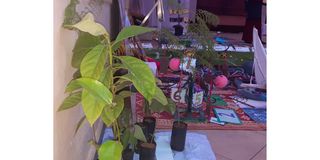Aga Khan Foundation receives over 160 innovative ideas devised to enhance learning

What you need to know:
- The innovative projects are based on four important skills based on student learning from the popular competence in reading, writing, and arithmetic and innovation
Dar es Salaam. The Aga Khan Foundation (AKF) has received 162 innovations of various education levels under its 'School 2030' project since its establishment in 2020.
The projects are based on four important competencies and skills-based learning goals from the popular competencies in reading, writing, arithmetic and innovation.
Of these “holistic learning innovations", 55 were innovated at the level of pre-primary education, 53 in primary schools, 40 in secondary schools and 16 at other education levels.
Speaking on the workshop for presenting some of the innovations, the National Coordinator of the 'School 2030' project by AKF, Mr Shaibu Mandova, said they added the fourth "K," which is "innovation," to help students adapt to the changing lifestyles and environment and be able to face the existing challenges.
"The fourth K for innovation aims at empowering students to identify things and solve problems by designing alternative ways," Mr Mandova added, adding that among those innovations are micro forests and a project to make charcoal from papers.
Mandova says they got the designs and helped distribute them in some schools, and now the students of the respective schools are learning in practice to take care of the environment. The project reaches more than 160 primary and secondary schools in the regions of Dar es Salaam, Lindi, and Zanzibar.
In a meeting that was attended by education stakeholders, there were teachers and education experts at local, district, and national levels, along with other stakeholders.
A teacher from Toangoma Secondary School in Dar es Salaam, Mr Ally Shambi, said in their school they have a microforest project.
"We have planted several trees, and we emphasise the importance of students taking care of the forest. We also have environmental clubs for students. Besides taking care of the forests, they ensure that the environment is clean," he said.
Shambi added that they came up with the project due to the fact that the world is now facing climate change, so there are needs for students to understand and prevent damage and be environment ambassadors.
The Director General of the Tanzania Library Services Board, Dr. Mboni Rezegea, who spoke on behalf of the Commissioner of Education in the country, said the government will continue to create an enabling environment for the private sector to continue collaborating with the public sector and promised to ensure that this innovation presented is distributed to other schools.
Another teacher from Luwale Primary School in Dickson McHome presented three designs, which involve the learning garden, shape recognition table, and IT equipment.
Explaining the shape recognition table, he said, "It is arranged in several shapes, so the student recognises the relevant shapes and hangs them on the table to fill the space."





